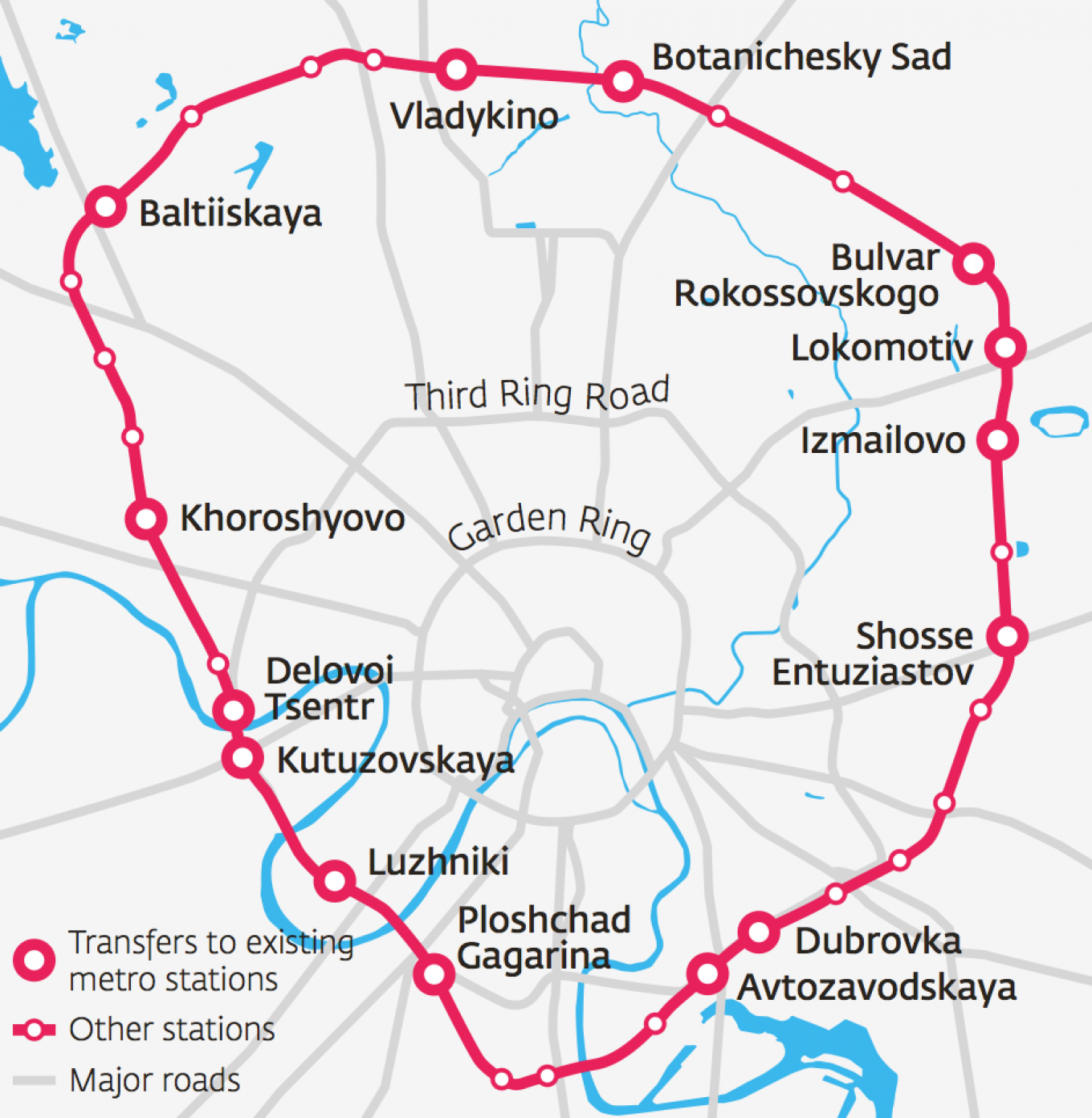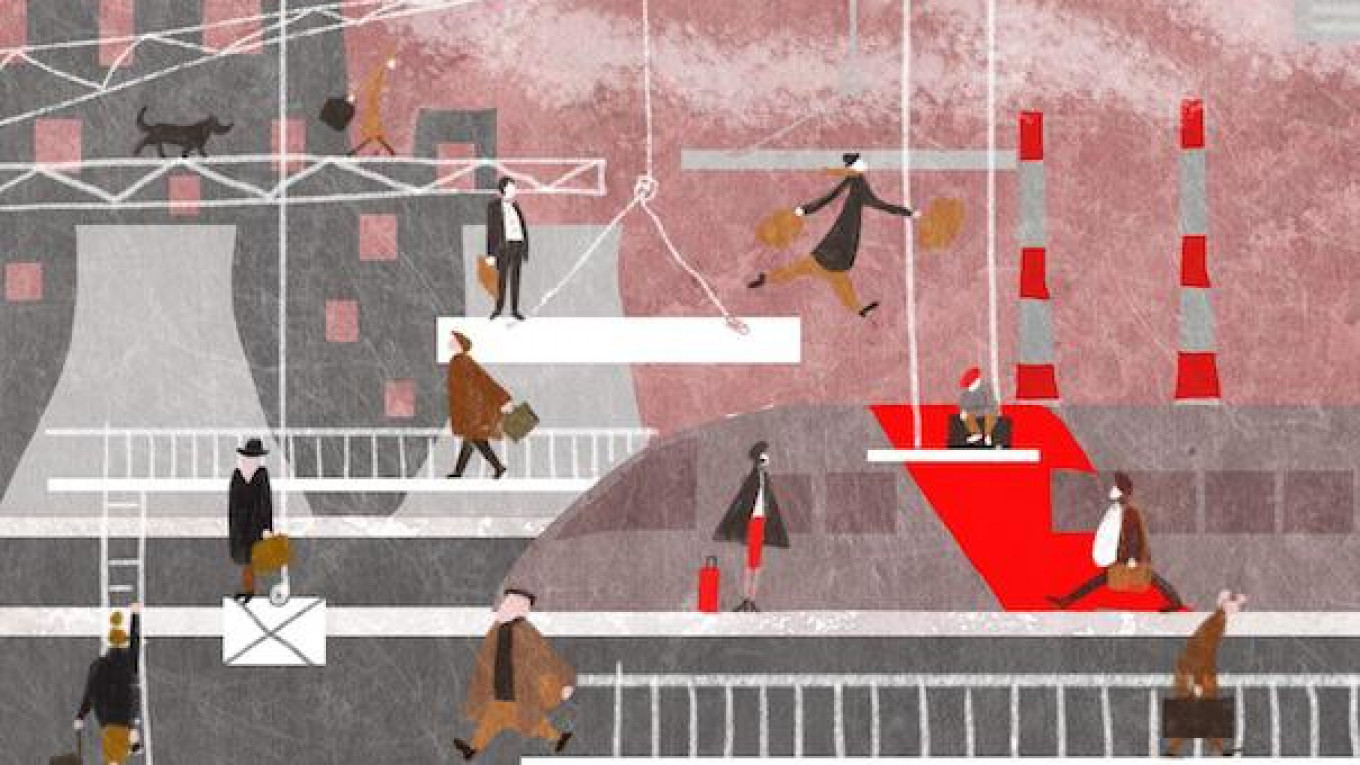A cloud of dust engulfs migrant laborers as they cut slabs of concrete. The dull roar of their saws is interrupted only by fits of coughing and the occasional obscenity.
This is Ugreshskaya station, part of the new Moscow Central Ring (MCR) overground rail project. Organizationally, the MCR a joint venture of the Moscow metro and Russian Railways. Financially, it is the result of 90 billion rubles ($1.38 billion) of state investment. But less than a week from its launch date, the MCR remains an unfinished project with a fast approaching deadline.
On Sept. 10, City Day in Moscow, high-speed “Lastochka” electric trains are due to begin ferrying passengers around the capital’s periphery, increasing access to parts of the city that were once isolated from the metro system.
Of the new stations, 17 will have metro transfers, and 10 will connect to the city’s network of suburban trains. For the first month, the MCR will be free. Afterwards, the ring will be fully integrated into the metro’s ticketing system and passengers will be able to transfer between the underground and the MCR for free. Developers predict 75 million people will use the line in its first year, rising to 300 million passengers by 2030.
But no one is expecting a completely smooth launch. Although all 31 stations will open, only 11 will be fully completed. Construction will continue for the foreseeable future.
It’s not difficult to understand the urgency of opening the MCR. Used by 9 million people daily, the Moscow metro is one of the world’s busiest and most extensive systems. The MCR is intended to relieve pressure on the metro’s central ring and radial lines and simplify travel between Moscow’s outer suburbs. The government also hopes that public transport’s increased reach will lure drivers off Moscow’s traffic-congested roads.
The MCR will also help “former industrial areas gradually acquire new life,” said Sergei Yakushev, deputy director of Moscow Ring Railways, in an interview with Lenta.ru.

The transport project faces challenges. The “overground metro” is far from perfectly integrated into the broader metro system. Only five stations have direct, enclosed metro transfers — eight more should be constructed in the next two years — and three MCR stations will connect to metro stations that have not yet been constructed.
The project has suffered criticism. Opposition politician Alexei Navalny drew attention to an incident in which a train was damaged during a test run on the line in July. Probok.net, a crowdsourcing project aimed at improving transport, calculated that only seven MCR stations will have metro transfers requiring passengers to walk fewer than 200 meters, and there will be transfer problems between the MCR and suburban trains.
And Mikhail Blinkin, a transportation expert at the Higher School of Economics, expects that passengers accustomed to the metro’s frequent trains will initially struggle with the longer intervals on the MCR: six minutes during rush hour, and 10-15 minutes at other times. “Muscovites are accustomed to insanely small intervals — 90 seconds between metro trains,” says Blinkin. “After 90 seconds, even 15 minutes seem like a long time.”
But few deny that the importance of the MCR. On his blog, Alexander Shumsky, Probok.net’s director and a candidate for the State Duma, calls it “one of the most important transport events of the year.”
Blinkin considers it a stimulus for people to relocate from expensive central districts within the Garden Ring. “If there’s demand, they will start developing these areas, investment will arrive, and people will want to live there,” he says.
Alexander Chekmaryov, Probok.net deputy director, feels the lines’s flaws limit its utility. “The demand [for the MCR] is real […] If transfers are convenient, the project will be beneficial.”
A Message from The Moscow Times:
Dear readers,
We are facing unprecedented challenges. Russia's Prosecutor General's Office has designated The Moscow Times as an "undesirable" organization, criminalizing our work and putting our staff at risk of prosecution. This follows our earlier unjust labeling as a "foreign agent."
These actions are direct attempts to silence independent journalism in Russia. The authorities claim our work "discredits the decisions of the Russian leadership." We see things differently: we strive to provide accurate, unbiased reporting on Russia.
We, the journalists of The Moscow Times, refuse to be silenced. But to continue our work, we need your help.
Your support, no matter how small, makes a world of difference. If you can, please support us monthly starting from just $2. It's quick to set up, and every contribution makes a significant impact.
By supporting The Moscow Times, you're defending open, independent journalism in the face of repression. Thank you for standing with us.
Remind me later.





